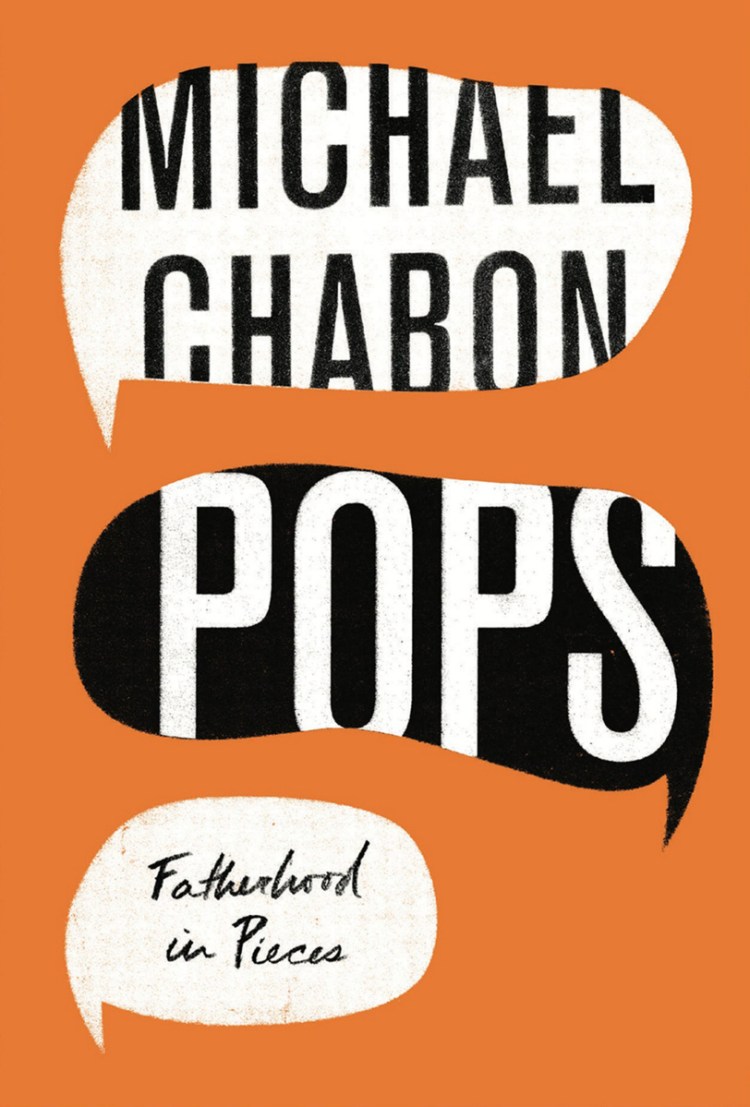In the preface to his droll, tender and shrewd new essay collection, Michael Chabon describes a literary party that he attended, circa 1987, where an older, wiser author proffered this advice: “Don’t have children.” Their care, he argued, will drain one’s writing output, resulting, over time, in a loss of one book per child. Chabon, of course, brushed off this cockeyed equation and charted his own course. Three decades later, he’s now the father of four children and author of 14 books, with no regrets about the unwritten volumes that his children have ostensibly sapped. If anything, he appears to revel in his various roles as dad, advisor and son, evolving feminist, lifelong nerd and occasional jerk (though his epithet of choice is more profane).
In “Pops: Fatherhood in Pieces,” Chabon serves up eight essays that explore the intricate bonds between fathers and their kids. In one sense, the book poses a series of challenges and provocations: We watch Chabon, a longtime critic of censorship, reading “Huckleberry Finn” with his kids, as they discuss possible replacements for the “n”-word; or salvaging the moment when, distracted, he fails to commend his daughter’s new haircut. Chabon, who lives in Berkeley and summers in Maine, surveys our cultural quirks and mores, ranging among topics from loneliness, to baseball, to cellphone etiquette.
Two essays, in particular, anchor this volume. The first, “Little Man,” chronicles a trip to Paris Men’s Fashion Week that Chabon took with his 13-year-old son, Abe, a budding fashionista. The author, whose zeal for fashion is, at best, negligible, serves as his son’s “ponderous old minder,” shuttling him to a roster of designer events. But it’s Abe’s moment of glory when, as a guest, he moseys into a private show of fashion house executive and designer Virgil Abloh, who proclaims, “Now, this dude here, that’s what I’m talking about.”
Chabon details the routine that Abe conducted each night assessing, mixing and matching the clothes he’d packed, “laying out his little self-portrait on the floor.” It was Abe’s way of asserting himself, of combating the taunts he suffered for his style, of celebrating his uniqueness.
“Abe worked to maintain his standard of idiosyncrasy, of standing out, freely incorporating floral patterns, vintage scarves, and the color pink into the outfits he wore into the heteronormative jaws of seventh grade,” Chabon writes.

Michael Chabon
By week’s end, Abe is teary-eyed about leaving Paris, having found a tribe of like-minded fashion obsessives. Meanwhile, his dad, exhausted from the designer whirlwind, has arrived at a newfound regard for his “sartorial wild child,” not to mention some serious paternal pride. As father-and-son stories go, this one is hard to beat.
The book’s final essay, “Pops,” is a tribute to Chabon’s difficult father, a brilliant, self-centered, old-school physician who makes house calls. As the piece opens, Chabon is a young boy who tags along for these appointments, his toy black doctor’s bag at the ready. Chabon comes to realize that the attentive, assuring manner that his dad showers on patients will never extend to the author himself; and yet, as an adult, he comes to appreciate the imperfect, complicated bond that they share. Few writers navigate complexity as deftly as Chabon, capturing the mood and detail of moments that rely on years of shared history.
Most of the essays in this book originated as magazine articles in GQ, Details, theatlantic.com and The New Yorker. They’re stand-alones with a common nucleus. The resulting book is a joyful, unidealized salute to the ties between fathers and their kids. If it feels, at times, like a medley of side dishes more than an actual meal, it’s due largely to the modest portions. With this sage, witty, undersized collection, Chabon leaves us wanting more.
Joan Silverman writes op-eds, essays and book reviews. Her work has appeared in The Christian Science Monitor, Chicago Tribune and Dallas Morning News.
Send questions/comments to the editors.


